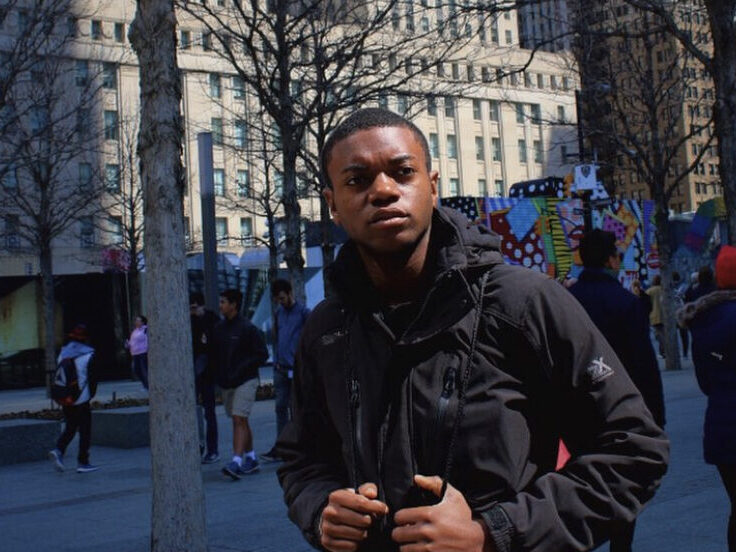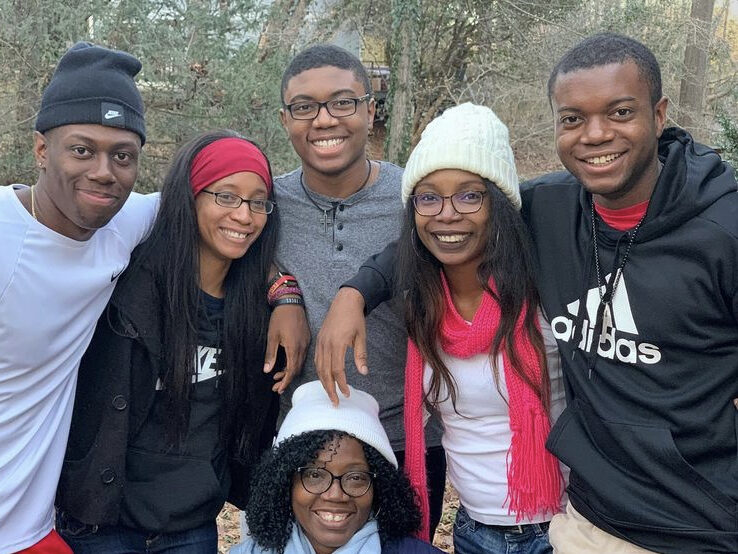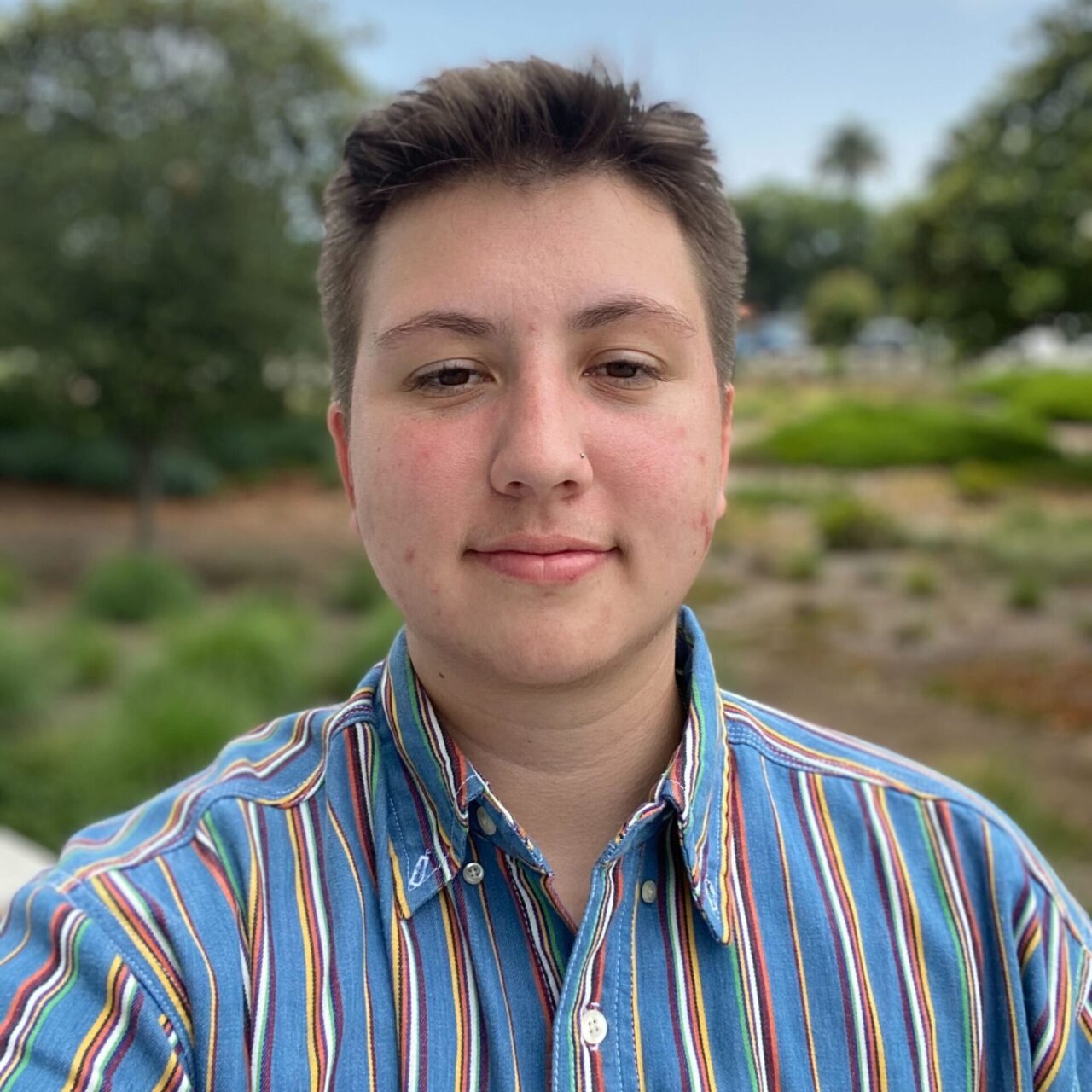ACE INTERVIEW: Issac Smith on the Necessity of Local Youth Climate Action
Nico Lovejoy
|February 10, 2022

Issac Smith is a former ACE fellow and now a member of the Youth Advisory Board, and a third-year student at North Carolina State University. Since joining the fellowship in 2018, Issac has worked on campaigns to encourage voter registration, end the Duke monopoly, and shut down the Atlantic Coast Pipeline.
Issac was initially drawn to ACE because he grew up passionate about conservation efforts but didn’t know where to start. Fortunately, his sister heard about ACE and encouraged him to sign up. Ever since being accepted into the program in 2018, he has enjoyed being a part of the organization and the work they do.
Indy Howeth (IH): When did you first learn about the climate crisis?
Issac Smith (IS): I first learned about the climate crisis when I was in 5th grade. At that point it was simply just “climate change,” and my limited understanding of it was that the world was getting hotter because cars used gas. I still wanted to fight against climate change, but I had no idea what the climate crisis really was. Around 8th and 9th grade I began to learn more about the climate crisis. That’s when I began to understand that climate change was much more complex than coal power plants harming the air. It was a truly shocking revelation to come to after years of believing that there was an easy fix.
IH: What was your immediate reaction?
IS: I was immediately confused. I couldn’t even be angry or upset or sad that this was happening. I just wondered: Why? Why is it that no one seems to care? Why is it that no one is talking about this on the news? Why is it that we are just allowing this to happen to the only planet we can live on? The answer was really quite disappointing. I never would have thought that people would destroy their homes and the homes of billions of others simply because it made them money and made their lives more convenient. At that point, I became angry about the whole situation.
IH: When did you first decide to get involved in climate activism?
IS: I set my mind to becoming involved in climate activism after I learned about the roots of climate change in human greed and selfishness. I was in 10th grade at this point. So, I couldn’t have been older than 15 at the time. I spent some time learning more about climate change and its causes and effects. While doing that I was also looking for ways I could help out or get involved with fighting climate change.

IH: How and why did you come to that decision?
IS: I came to that decision because I live on earth. It honestly was as simple as that. I just want to be able to continue to live on earth. I want to be able to go outside without having to worry about harmful levels of air pollution or temperatures hot enough to kill in areas that aren’t supposed to be that hot. One day, my sister sent me a link to an application for an organization that helps train youth climate activists. I immediately applied.
IH: What does the word “climate emergency,” mean to you?
IS: Climate emergency to me means that the earth is at a tipping point. It means that we have an opportunity now to slow the rate of climate change to bearable levels. On the other hand, climate emergency means that we’ve pushed the environment to its absolute limits and need drastic action to prevent environmental disasters on a global scale. It means that it’s time to make a change if we want to continue living on this planet.
IH: You’ve shown a particular interest in your work around environmental justice. What does that mean to you and why is it especially important to your work?
IS: Environmental justice to me is a necessity. A majority of the people who suffer the worst effects of climate change and harmful environmental practices are typically minority communities and low-income communities. These groups of people are seen as being disposable and/or powerless and are then treated as such. Yet, the people most responsible for this climate emergency are those who don’t have to live in these communities. So, if we really want to fight against climate change, we have to also fight with and for the people suffering the most. We have to fight against the harmful – oftentimes racist – practices that put these communities at risk in the first place.
IH: You have also expressed a passion for a shift to renewable energy. Why do you think this is so crucial?
IS: At this point it is a well-known fact that most of the harmful emissions are the direct result of using nonrenewable energy sources, namely fossil fuels. These fossil fuels not only pollute the air, they pollute the water, and they pollute the very ground where they end up being dumped or stored. Furthermore, they aren’t the most efficient method of producing energy anymore. And, in some cases, it’s economically beneficial to use renewable energy. Despite all these reasons to switch to renewable energy, the switch still hasn’t happened. But, the planet is still dying. Well, more accurately, we are still edging closer to death. So, it’s crucial to switch to renewable energy so that we can have a chance at slowing this climate crisis.
IH: When and why did you get involved with the Action for the Climate Emergency?
IS: I got involved with the Action for the Climate Emergency in my senior year of high school. My sister is actually the one who found it with 0 prompts from me. She just stumbled upon it while looking at environmental opportunities for young people and sent me the link because she knew I’d be interested. I ultimately decided to get involved with the Action for Climate Emergency because it sounded exactly like what I had been looking for: a group of individuals, young people specifically, passionate about addressing and fighting climate change. I applied immediately.
Why? Why is it that no one seems to care? Why is it that no one is talking about this on the news? Why is it that we are just allowing this to happen to the only planet we can live on?
IH: What kinds of actions have you been able to participate in through your work with ACE?
IS: Through my work with ACE I’ve been able to participate in various climate actions. One of my favorite actions was meeting with a local city council member to discuss climate change policies and actions that the government can and may take to mitigate the city’s environmental impact. Prior to that, I had the wonderful opportunity to attend a retreat with at least a hundred other individuals all fighting against climate change through activism.
IH: When was a time you felt proud of the impact you had made through your climate activism?
IS: There have been plenty of times I’ve felt proud of the impact I’ve made through my climate activism. But the proudest I’ve been of my climate activism is from before I even really knew what activism was. Even in elementary school, I was always fascinated by the environment. So, when I was told to recycle to save the planet, I was all about it. I would actively troll through my household’s trash to try and recycle as much as I could. It got so bad that my family would actively show themselves recycling when around me. Then they just began recycling out of habit. Yet still to this day, if I’m with one of them they will ask me whether or not something is recyclable. Now, all of us are grown and out of the house, but we all still recycle and care about the environment. It seems like a small thing, but as a kid, my caring about the environment led my family of 4 other people to care about the environment. From there it will continue to grow.
IH: How do you cope with the fear and anxiety that the climate crisis induces?
IS: Fear and anxiety induced by the climate crisis is, unfortunately, very real and growing. I’ve had my fair share of battles with anxiety, climate change-related and otherwise. But the one reason I can cope with it and keep moving is because I’m still alive and I still care. As long as people care enough to do something, there is still hope. And as long as at least one person cares enough, they can help get other people to care too.
IH: What is your advice to young people who want to get involved in climate activism? IS: My best advice to young people wanting to get involved in climate activism is to use Google. It’s really rather simple. Look up things like “local climate activism opportunities,” “local ways to fight climate change,” or something along those lines. Odds are they will find something in their area that at least peaks their interest. Or check out Instagram as there are plenty of organizations with active social media accounts that can help. Another thing I’ve found is to look up protests for the environment and see who was involved. From there you can probably find a group of people to reach out to. And, if all else fails, start your own thing whether it be picking up trash in the neighborhood, talking to your local politicians, making a sign and starting your own protest, or educating the young. Just do whatever you can as often as you can, sooner or later you’ll find some way to help that suits you best.
IH: Why is local climate activism important?
IS: Local climate activism is very important for a couple of reasons. For one, fighting climate change on a global scale is a task that will take lots of time and organization. But, more importantly, if we can fight climate change on a local level then the problem will no longer require more global/nationwide action. Furthermore, local climate activism is easier to organize and, sometimes, garner support for as your community is a group you can relate to.
IH: Why is youth climate activism so necessary?
IS: Youth climate activism is necessary because we will inherit this earth. For better or worse, this is the planet we will grow up on. This planet will belong to us and our children so we should fight for the planet we want to live on. Also, youth climate activists tend to have more bold ideas and the willingness to take these drastic actions. So, in many cases youth climate activism is highly effective. Greta Thunberg is an excellent example of this.
Photos courtesy of Issac Smith
Answers may have been edited for length.
Want to read more? Check out the ACE Blog!
Join our Youth Action Network
More Blog Posts

Our Climate Wins Were on Display at the State of the Union
Today, the Biden Administration temporarily halted all pending decisions on 17 Liquefied “Natural” Gas (LNG) projects across the Gulf South.
Read More
ACE Honored As An Anthem Awards Finalist
Action for the Climate Emergency (ACE) announced today that it won Bronze in Best Use of AI at the 3rd …
Read More
BREAKING: Biden Halts LNG Export Expansion
Today, the Biden Administration temporarily halted all pending decisions on 17 Liquefied “Natural” Gas (LNG) projects across the Gulf South.
Read More
